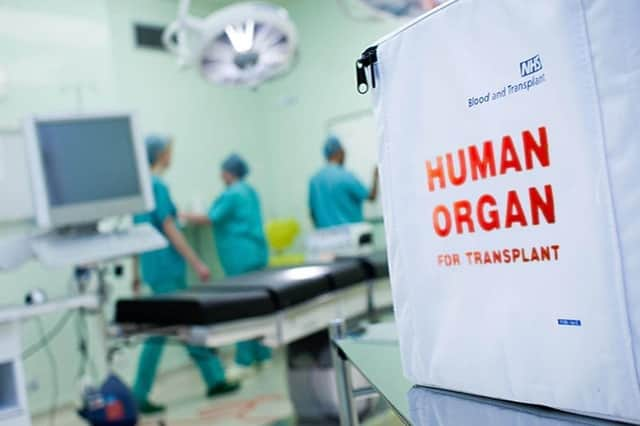Scotland's organ donation law is changing to an opt-out system and we should make sure our wishes are heard – James MacKinnon


Whilst the Covid crisis has created great stresses on individuals, families and businesses it has given us cause to reflect on some important issues, issues which we may, in normal circumstances, have avoided or felt not to be a priority.
One of the areas which has been brought into sharp focus is the question of what happens to our worldly possessions when we die. Quite simply, everything from our home to savings and investments form part of our estate and young or old, a homeowner, parent or grandparent, you are likely to have accumulated at least some assets, even if it is a small amount of savings. Ideally, we’d want to have some control over what happens to what we own when we are no longer here, and making a will is undoubtedly an effective way to do so.
Advertisement
Hide AdAdvertisement
Hide AdHowever, an imminent change in the law in Scotland will affect not just our wishes when it comes to our wealth and assets, but actually our physical bodies.
Up until now, when you die, in general your organs could only be used for donation if you had provided prior consent to allow this to happen. You could do this by narrating this in your will and also by registering on the organ donor website.
The Human Tissue (Authorisation) (Scotland) Act 2019, which will come into effect on 26 March 2021, changes that situation quite significantly.
In effect, the new law around organ and tissue donation is changing to an opt-out system. In short, it means that most adults who die in circumstances where they are able to donate will be considered as having agreed to be a donor – unless you have recorded a decision not to.
This is an incredibly important piece of legislation given that, according to Scottish government statistics, an average of more than 500 are waiting for an organ transplant at any one time. In addition, only one per cent of people die in circumstances when they might become a donor.
If you do not wish to be a donor, you can choose to opt out on the NHS organ Donor Register, before or after the law changes. It’s also recommended that you share your wishes with your close family and friends.
It is important to point out that under the new law, families will still be consulted at the time of death and will have a final say. However, it is crucial that individuals seek advice from an appropriate professional and indeed their own families, in order to clarify and record exactly what they wish to happen on their death.
Ultimately, although we cannot avoid what is the most sensitive of subjects, we can make sure our wishes are heard.
Advertisement
Hide AdAdvertisement
Hide AdThere is nothing closer to us or more personal than our body, and it is your right to decide what happens to it.
James MacKinnon is head of private client at law firm Aberdein Considine